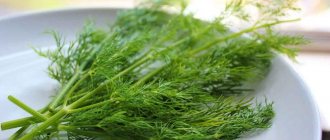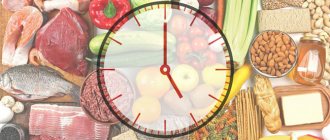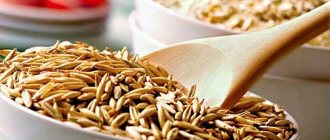Intestinal colic in children in the first months of life is a fairly common occurrence. It is associated with the immaturity of the digestive system and is accompanied by paroxysmal abdominal pain. Treatment of intestinal colic in an infant involves the mother's diet, the correct selection of infant formula, adherence to feeding techniques, taking probiotics, carminative and antispasmodic drugs. One of them is a herbal remedy - dill water. You can buy it at the pharmacy or prepare it yourself at home.
In the article we will talk about the benefits and harms of dill for the gastrointestinal tract, learn how to prepare and take a decoction of dill seeds for a baby, as well as storage conditions and periods.
Does dill help newborns with colic?
In folk medicine, dill is used as a medicinal raw material, which can be used to improve intestinal function and reduce the accumulation of gases in infants.
To prepare dill water, use ripe fennel fruits or herbs. All parts of the plant contain flavonoids, essential oil, pectin, carbohydrates, a set of mineral salts, vitamin A, ascorbic and nicotinic acids. Together they improve the functioning of the digestive organs, eliminate and alleviate painful cramps in the stomach, regulate gas exchange, and relieve irritability. Fennel fruits are offered to children both during an attack of intestinal colic and to prevent their occurrence.
Positive reviews from a large number of parents confirm the effectiveness of fennel in the treatment of intestinal colic in children in the first months of life. However, to achieve a positive result, an integrated approach is important: the diet of a nursing mother, abdominal massage to relieve gases and improve intestinal motility, the correct choice of infant formula and adherence to feeding techniques.
Negative reviews are rare and are mainly due to the fact that the medicine turned out to be ineffective and difficult to give to a newborn.
Operating principle and benefits
Thanks to a diverse set of biologically active components, consumption of dill normalizes metabolism, improves motility of the digestive tract, and enhances the secretion of the digestive glands.
All parts of the plant have expectorant, antispasmodic, choleretic, antibacterial and sedative effects. In addition, fennel is used to normalize appetite and digestion, and is recommended for lactating women to improve lactation.
Side effects if you follow the dill water preparation technique and application regimen are extremely rare. In isolated cases, skin rashes, itching, and urticaria are possible.
What to do then for colic
First, let's find out what colic is. An international classification of diagnoses has been introduced around the world. All known diseases are divided into groups. Among them there is no such definition as intestinal colic.
It turns out that colic is simply a common folk explanation for all the incomprehensible signals emanating from the baby. Inexperienced mothers tend to explain any dissatisfaction or discomfort with colic or a sore tummy.
Babies may experience discomfort when their intestines are full because bowel movements require relaxing the sphincter, and a newborn cannot do this voluntarily. But this factor is easier to deal with than a mythical disease for which there is no single treatment regimen.
Do not miss
- Do not miss
9 Baby Photos You'll Regret If You Don't Take
Special pose
Instead of brewing dill water, you can adjust the planting: using a special pose to help relax the necessary muscles. The second option: you can put the baby to the breast - this relaxes the whole baby.
Correct application
There is no point in holding the baby after column feeding. If you suspect that the baby is swallowing a lot of air, you should check whether the attachment to the breast is organized correctly.
Contact with mom
The connection between increased gas formation in a child and the presence of foods such as peas and cabbage in a nursing mother’s menu has not been proven. Mother's milk is produced from the blood - only those substances that are dissolved in the lymph can enter it. The secret “pea” ingredient that causes bloating has not yet been found in the blood.
Contact with mom is the best cure for most problems with a newborn. This contributes to the timely development of the child. Being close to the mother is the key to successful breastfeeding and the baby’s good mood.
Use of dill herb
Dill grass is often considered as a valuable food product. Its use can satisfy the body's need for ascorbic and nicotinic acids, calcium, potassium, iron, phosphorus and other useful elements.
In cooking, the herb is used fresh, dried or salted, in various spice mixtures, for cooking, pickles and preservation.
Reference. The leaves contain phytoncides, which, when salted, not only impart a specific taste to the product, but also prevent spoilage and mold.
Uses of dill seed
In folk medicine, dill fruits are used as a medicine. They are part of sedatives, laxatives, carminatives and choleretic preparations. Dill seed is processed into oil, which is the main component of such drugs as “Dill Water” and “Anetin”.
In addition to its diuretic and antispasmodic effect, dill seeds are used as a powerful antioxidant for the prevention and treatment of diseases of the digestive system and upper respiratory tract.
The fruits of the plant have a beneficial effect on the general condition and function of the myocardium, increase the elasticity of vascular walls, and stimulate hemodynamic processes. Due to this, they are widely used in the treatment of atherosclerosis, ischemia and heart failure.
How is the plant useful?
Dill seeds are very beneficial for the baby's body, as:
- cleanse the body of harmful microorganisms and promote the production of beneficial bacteria;
- reduce and relax spasms of intestinal smooth muscles;
- expand the intestinal walls, reducing the pressure exerted on the organ;
- relieve inflammatory processes;
- improve appetite;
- help cope with constipation;
- have an antibacterial effect.
Dill water perfectly removes gases from the baby’s intestines , as it quickly relieves muscle spasms in the organ. Regular use of the product will eliminate pain and improve the digestion process.
Store-bought dill water
It can be difficult to find dill water on sale, especially in small towns: it is prepared where there is a prescription department. The average price of a 100 ml bottle varies between 150 rubles; fennel seeds (40 g) cost three times less.
The composition is simple: purified water and dill oil. It goes on sale in glass bottles, packaged in cardboard packaging. Dill water is used to treat adults, newborns and older children with problems with the gastrointestinal tract.
Reference. An analogue of “Dill Water” is available for free sale - granules for preparing a solution for oral administration “Plantex” based on essential oil and fennel fruit extract. This remedy is allowed for children from the first days of life.
Homemade
There are several ways to brew dill for newborns for colic at home. Next we will look at two main recipes: infusion and decoction. The medicine is prepared from purchased dill seeds or grown independently. It is recommended to use exclusively distilled water.
Important! The seeds are collected when they begin to ripen. The inflorescence should be cut off, placed in a paper bag or tied in a bundle, and left in a warm and dry place for 5-7 days. Separate dry seeds from the stems and store in an airtight container.
How does dill water affect the body of a newborn?
Placebo
First of all, it works on the placebo effect. If a mother trusts a product and has high hopes for it, then her confidence is passed on to the child. By brewing dill for colic, mom calms down and gains confidence that she will overcome all the difficulties with colic and gas formation. In this case, the power of self-persuasion is much greater than the pharmacological effect of the drug.
Laxative effect
Dill water for newborns has a laxative effect. A baby's gastrointestinal tract is not ready to digest non-dairy foods until about four months of age.
If at this age a baby receives any food other than mother's milk, then a completely natural consequence of this is banal diarrhea. That is, the laxative effect indicated in the description of the drug is the reaction of the unprepared gastrointestinal tract to the entry of food into it. By the way, this can provoke allergic reactions.
How to brew dill for a baby
Let's look at two main recipes:
- 1 tbsp. pour a spoonful of dill seed into 1 liter of cold water and place in a water bath. From the moment it boils, keep it on low heat for a quarter of an hour. Cool the broth and strain through cheesecloth or a sieve.
- 1 tbsp. Pour 1 liter of boiling water over a spoonful of fennel seeds, cover with a lid and leave for an hour. If large leaves of the plant were used, the infusion time must be increased to 1.5-2 hours. Give infants the strained infusion.
Fennel essential oil is often used to prepare dill water. To do this, 0.05 g of oil must be dissolved in 1 liter of purified water. Store the finished product in the refrigerator for no more than 30 days. Before use, a single portion should be warmed to room temperature.
Instructions for use
According to the instructions for use, “Dill Water” should be given to the baby 1 teaspoon every 2-3 hours before feeding, using a syringe, spoon, bottle or by instilling 10-15 drops on the tongue. The effect of using the medicine is noticeable after 20-30 minutes. The product can be offered in its pure form or diluted in breast milk or infant formula.
Dill water, prepared at home, is taken for medicinal purposes according to the following scheme: 50-100 ml in small portions throughout the day. For prevention, a dose of 40-60 g, divided into 2-3 doses, will be effective. Every day you need to prepare fresh medicine. The rest of the decoction can be consumed by a nursing mother to improve lactation and normalize digestion.
Precautionary measures
An absolute contraindication for taking dill water is individual hypersensitivity to one or more components of the composition. To eliminate the possibility of allergies, it is necessary to begin treatment with minimal doses, gradually increasing the single and daily dose. If signs of an allergy are detected, you should stop taking the drug and consult a pediatrician.
Terms and conditions of storage
Pharmacy dill water should be stored in the refrigerator for no more than 30 days. Self-collected and dried dill seed should be stored for up to 24 months in a sterile container with a lid in a dry and well-ventilated area.
Dill fruits purchased at a pharmacy must be stored at a temperature no higher than 25⁰C and a relative humidity of no more than 70%. Shelf life: two years.









